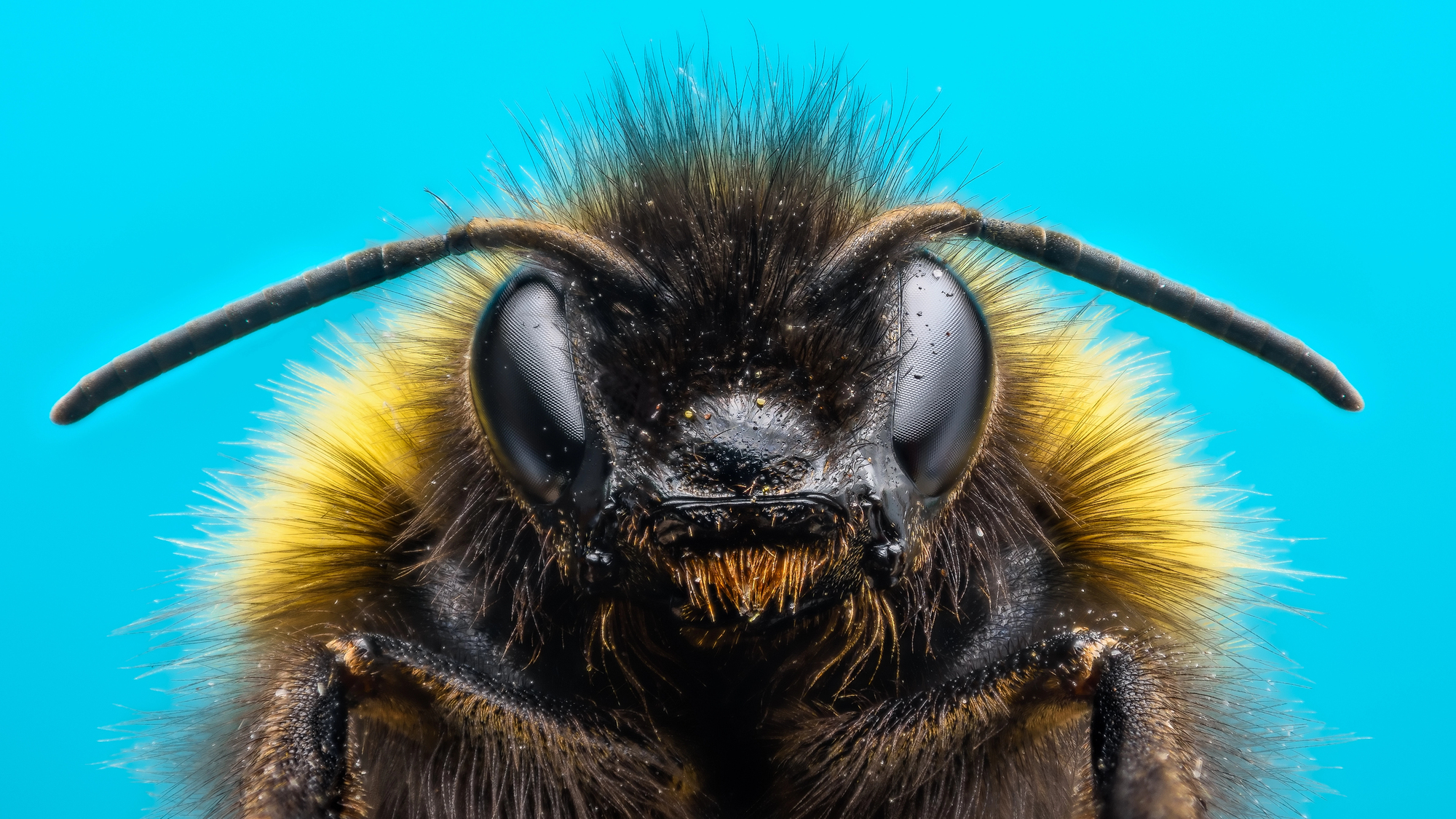The bees are having a rough go of it. Declining populations, parasitic wasps, and continued environmental degradation would be stressful situations for any species—and the planet’s vital pollinators appear to respond to pressure much like many humans do. New research published on October 9 in the Proceedings of the Royal Society B from a team at Newcastle University suggests that just like us, bees are more likely to make pessimistic choices after being put through the ringer.
To test what happens when bees are under duress, the team first trained three groups of the female worker bumblebees to identify and associate different colors with varying outcomes—a blue LED screen represented a location with a sweeter reward, while green indicated a less favorable water solution. Once the bees understood each color’s reward amount, researchers then placed the groups in chambers with varying hues that fell in the spectrum between blue and green, then simulated a predatory attack for two groups, either by giving them a light shake or temporarily trapping them with a sponge-tipped robotic arm. Meanwhile, a third group faced no outside stress to act as a control.
The influence of stress on a bumblebee was unambiguous. In their results, the team concluded the perturbed bees were significantly less likely to interpret ambiguous colors as representing a better reward, and in turn, more frequently flew to lower reward locations than their control group.
[Related: Bumblebees carbo-load on the fly.]
“Our study shows that bees are more pessimistic after stress, as their behavior suggests that they do not expect to get rewards,” study co-author and animal behavior researcher Vivek Nityananda said in Newcastle University’s accompanying statement on Wednesday. Olga Procenko, the study’s lead author, equated the situation to “someone seeing the glass as ‘half empty,’” and expecting “negative outcomes.”
Nityananda went on to explain that while emotions are “complex states,” and for humans, involve a subjective understanding of feeling. But while we “might never know if bees feel something similar,” Nityananda concluded it’s clear that their decision making is influenced by stress towards making “pessimistic choices.”
The study’s results, according to Procenko, suggest that “states akin to emotion may be evolutionarily conserved.” Because of this further research may improve human understanding of the cognition and behavior of bees and other insect species can be affected by stress, be it environmental or human-induced. In doing so, better decisions can be made when it comes to implementing the best conservation solutions.

